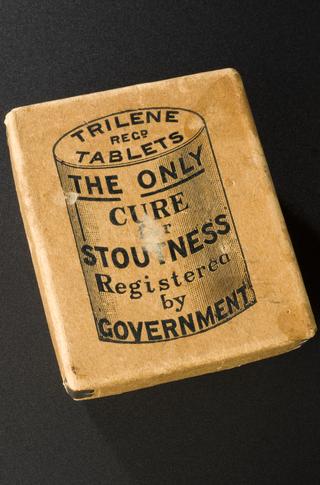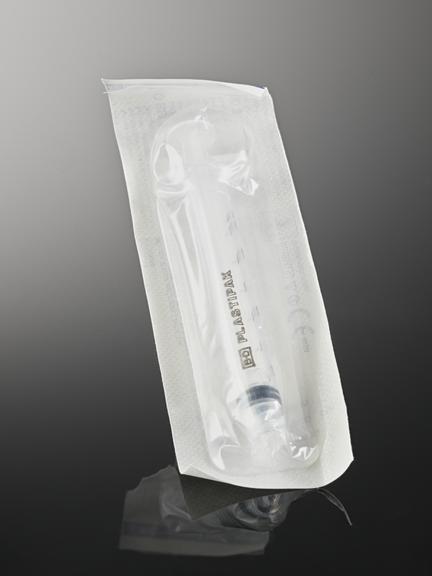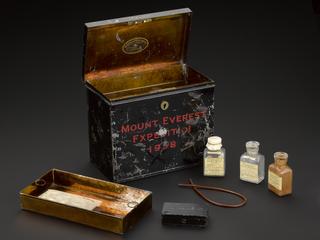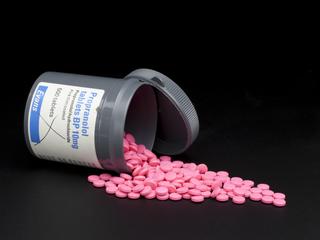
































CARiAD injection training pack for lay carer administration of as-needed subcutaneous (needle-less) medication for common breakthrough symptoms in the last days of life for adults wishing to be cared for at home when they die, consisting of a needle-less closed subcutaneous catheter (Saf-T-Intima) inserted into a stoma-like adhesive dressing, selection of luer-lock syringes, glass and plastic ampoules containing water or saline solution, blunt drawing up needles, alcohol wipes and a plastic box and lid, with unused Carer Materials (Carer Diary, A guide for carers, A step by step guide to opening and drawing up medication from an ampoule, 10 step plan for preparing and giving as needed subcutaneous using a no needle technique, 10 step plan for preparing and giving as needed subcutaneous injections using a blunt needle technique, Carer Competency checklist, Carer statement) and unused Healthcare Professional Materials (CARiAD process flowchart, CARiAD process checklist, CARiAD Information sheet for patients and carers, Risk Assessment for Inclusion of patient and lay carer(s), CARiAD Regular Clinical Review Guidance, Information for prescribers, Structured debrief for carer(s), Case Review Sheet), part of the all-Wales CARiAD package, 2020 based on National Institute Health and Care Research-funded CARiAD feasibility trial, 2016-2019
Beginning in November 2016, the CARiAD research team based at Bangor University carried out a three year study into the possibility of lay carers administering specific as needed medications to alleviate common symptoms which may occur in the last days of a person’s life. Lay carers are family members or friends helping to care for a person in their own home, and who are not paid for this role. Common symptoms are pain, nausea or vomiting, anxiety, agitation or restlessness, noisy ‘rattly’ breathing and breathlessness. These symptoms may ‘break through’ a person’s regular medication, meaning additional (or top up) medications are needed. The medications are given subcutaneously (just under the person’s skin) through a cannula already in place, so do not require needle-injections.
Led by co-chief investigators Professor Clare Wilkinson and Dr Marlise Poolman, the team learnt from 30 years of practice in Australia’s Caring at Home guidance. Lay carer administration was already legal in the United Kingdom, as long as people were trained and supported. Some local policies such as in Lincolnshire were already in place, particularly to support those in rural areas.
The CARiAD study was carried out with full ethical approval, taking into consideration the impact of research taking place in the last days of someone’s life. The team found that lay carer administration of medications for breakthrough symptoms, with training, was safe, acceptable, and welcomed by lay carers and patients. Carer confidence increased rapidly; symptom control was quicker with long waits for visiting healthcare professionals avoided for symptom relief. CARiAD, from the Welsh for love, reflects the fact that many lay carers are close family or friends. familial roles many lay carers also have.
At the outset of the COVID-19 pandemic in March 2020, the research team was asked to draft a policy and procedure for NHS Wales to respond to the needs of carers, patients, and healthcare professionals. There was concern that healthcare professionals such as district nurses might not easily enter people’s homes to administer as needed medicines, increasing waits for symptom relief. Within 7 days CARiAD went from research study to national policy.
Suitable and willing lay carers of patients choosing to be at home when they die are trained to recognise common symptoms that occur at end of life. Carers are trained how give medications through the cannula already in place, how to record what they have given and who to contact if additional assistance is needed. They are under no obligation to give medications under the CARiAD package and can withdraw from the agreement at any time. Carers are also supported after their loved one has died and are invited to give specific feedback on their experiences.
The CARiAD team freely shared their resources to those also wishing to establish this approach in their area including the Helix Centre team in London who had also been working on lay carer administration. A National Community of Practice run by palliative care specialists Marlise Poolman and Imogen Eastwood shares learning, risk assessments, governance, and guidance to those looking at applying lay carer administration in their local health areas.
Details
- Category:
- Materia Medica & Pharmacology
- Object Number:
- 2023-835
- Measurements:
-
overall (training box): 50 mm x 170 mm x 115 mm,
overall (carer materials): 297 mm x 210 mm
- type:
- training pack




